
Woman Won’t Tolerate Neighbors’ Kids’ Anymore, Asks For Advice And The Internet Delivers
No matter where you choose to live, nothing can guarantee that you will settle next to a good neighbor. You can be paying an exorbitant rent or mortgage, live in a private house, and be away from the downtown area, and your neighbor might still annoy you with late parties, early lawn mowing, or obnoxious parking habits. It’s all just down to your luck.
So, how does one deal with an annoying person next door? Well, a civil conversation is a great approach but it does not always yield the results you’re hoping for. That is what happened to reddit user @Tnouocca_Yawaworht who turned to the r/neighborsfromhell community to ask for tips and tricks to deal with her situation. Read on to find out what’s bothering her and the advice she received for coping with it.
The burden of having an annoying neighbor is, unfortunately, well-known to many of us
Image credits: Lina Kivaka (not the actual photo)
The woman in this story is also familiar with it. Here’s how she’s trying to ensure some peace and quiet in her home
Image credits: Mary Taylor (not the actual photo)
Image source: Tnouocca_Yawaworht
One piece of solace about this situation is that it seems that the neighbors are not doing it maliciously. When informed about the disturbance, they do try to get their kids to keep the volume down. The kids, however, cannot keep it down for long. And the noise is, of course, annoying whether there is some spiteful intent behind it or not.
According to Arline Bronzaft, an environmental psychologist and professor emeritus at the City University of New York, who for the last 50 decades has been working on making New York quieter, the OP’s complaint is not as common in the Big Apple these days. “When I was a youngster, more children were playing on the street, shouting.” These days, Bronzaft, who gets complaints about trains, cars, construction, parrots, and windmills, doesn’t get that many calls about children that are too loud anymore.
Of course, that doesn’t make the OP’s problem less upsetting. Yet, it seems like there’s only one tactic that can help the woman in this situation. That is soundproofing like her life depended on it. The commentators suggested black-out curtains that can help block the noise as well as planting trees or bushes along the fence. On top of it, some also recommended drowning out the noise by turning on fans, playing music, or getting a white noise machine.
Legally, there’s not much a person can do in this situation
Neighbors that wish to deal with these sorts of situations fairly and amicably often turn to mediators for help. They allow them to figure out the issues and come to a mutual understanding without things getting nasty. A mediator Mike Talbot, who spoke to The Guardian about how mediation works pointed out that he wished more people would involve a professional before taking matters into their own hands. “Too quickly, people start a world war. Mediation helps people have a conversation.”
The only way to have a productive conversation, though, is to be dealing with parties that wish to participate. The other crucial part of making it work is also that the things that are being discussed have to be something a person can control. Those can be DIY projects, pets, cooking smells, or loud TV or music being played at night.
According to Talbot, things that a person cannot control are more difficult to come to terms with. Unsurprisingly, those often relate to child-rearing. Shouting, screaming, and crying is often unavoidable. If it’s normal living noise (usually between 55 and 60 decibels or as loud as a vacuum cleaner), there’s not much one can do about it.
Talbot also has a few tips on how to approach the conversation if you do have an issue with your neighbor’s noisiness. “Pick a time and place to speak – don’t go around angry at 2am. Neutral ground is good, so leaning on the garden fence. Listen first. You could say: “I noticed you had friends around and it got late. Were you celebrating?” Hear what they say, then put your point across. Maybe: “Lovely to hear it was your cousin’s wedding. I hope you had a great time. From my point of view, it went on quite late – I had to be up at six.”
He also recommends always talking about the future, not lamenting about what’s already happened. So, finish the conversation with a suggestion on when you’d prefer the noise to stop next time. And, if things improve, make sure to acknowledge it by telling the neighbor that you appreciate they were considerate of your needs, too.
In the OP’s situation, though, calming her neighbors down with a conversation might not solve the problem. Still, hopefully, she can find some peace with the help of some solid soundproofing curtains.
Here are some of the reactions, tips, and tricks that people suggested
If it's during hours when someone could be mowing the lawn or using a saw, there's not really anything to be done. It sucks and I have a similar chronic illness that requires a lot of sleep, I get light and sound sensitive, but aside from bribery, it's just a waiting game until you can move elsewhere. I have a neighbour who does woodwork (saws and hammers) at a home business on a narrow street that echoes. Into my windows from 9nam onward most days, and it's awful, but that's city life. Most people are inconsiderate and there are too many people around.
If it's during hours when someone could be mowing the lawn or using a saw, there's not really anything to be done. It sucks and I have a similar chronic illness that requires a lot of sleep, I get light and sound sensitive, but aside from bribery, it's just a waiting game until you can move elsewhere. I have a neighbour who does woodwork (saws and hammers) at a home business on a narrow street that echoes. Into my windows from 9nam onward most days, and it's awful, but that's city life. Most people are inconsiderate and there are too many people around.

 Dark Mode
Dark Mode 

 No fees, cancel anytime
No fees, cancel anytime 













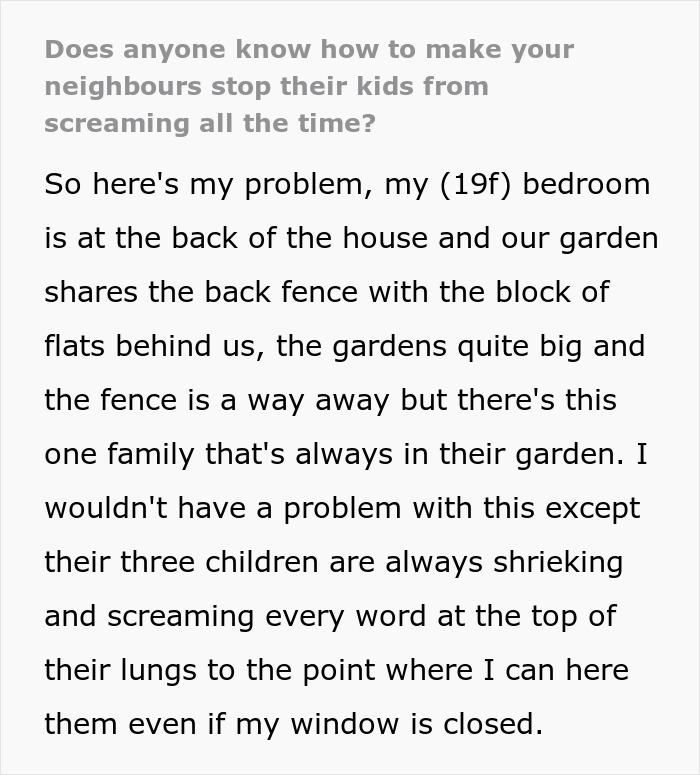




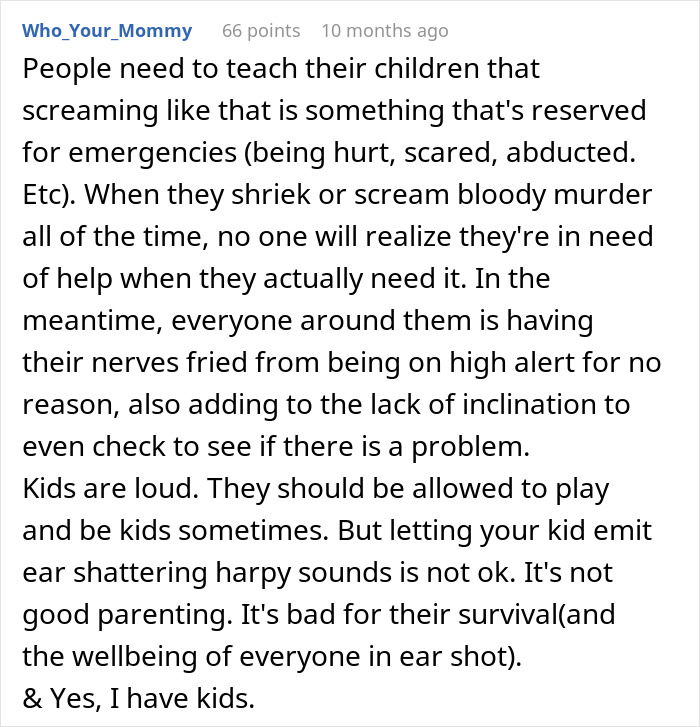


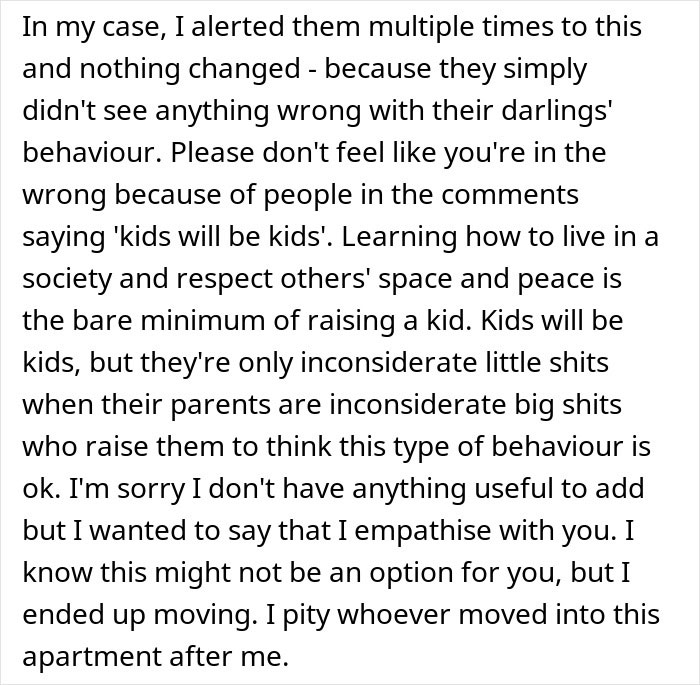
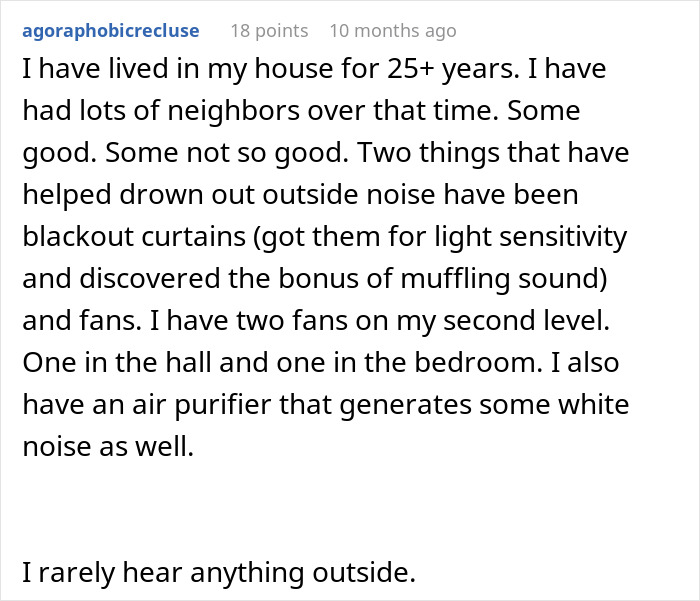


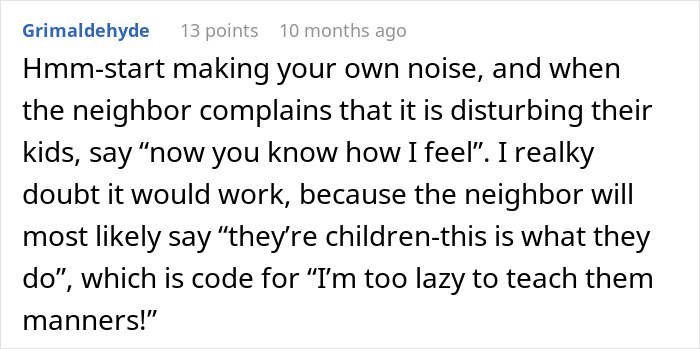




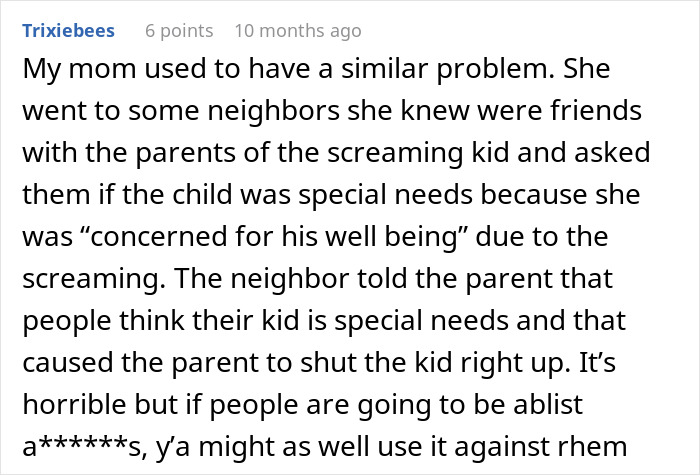

























34
29